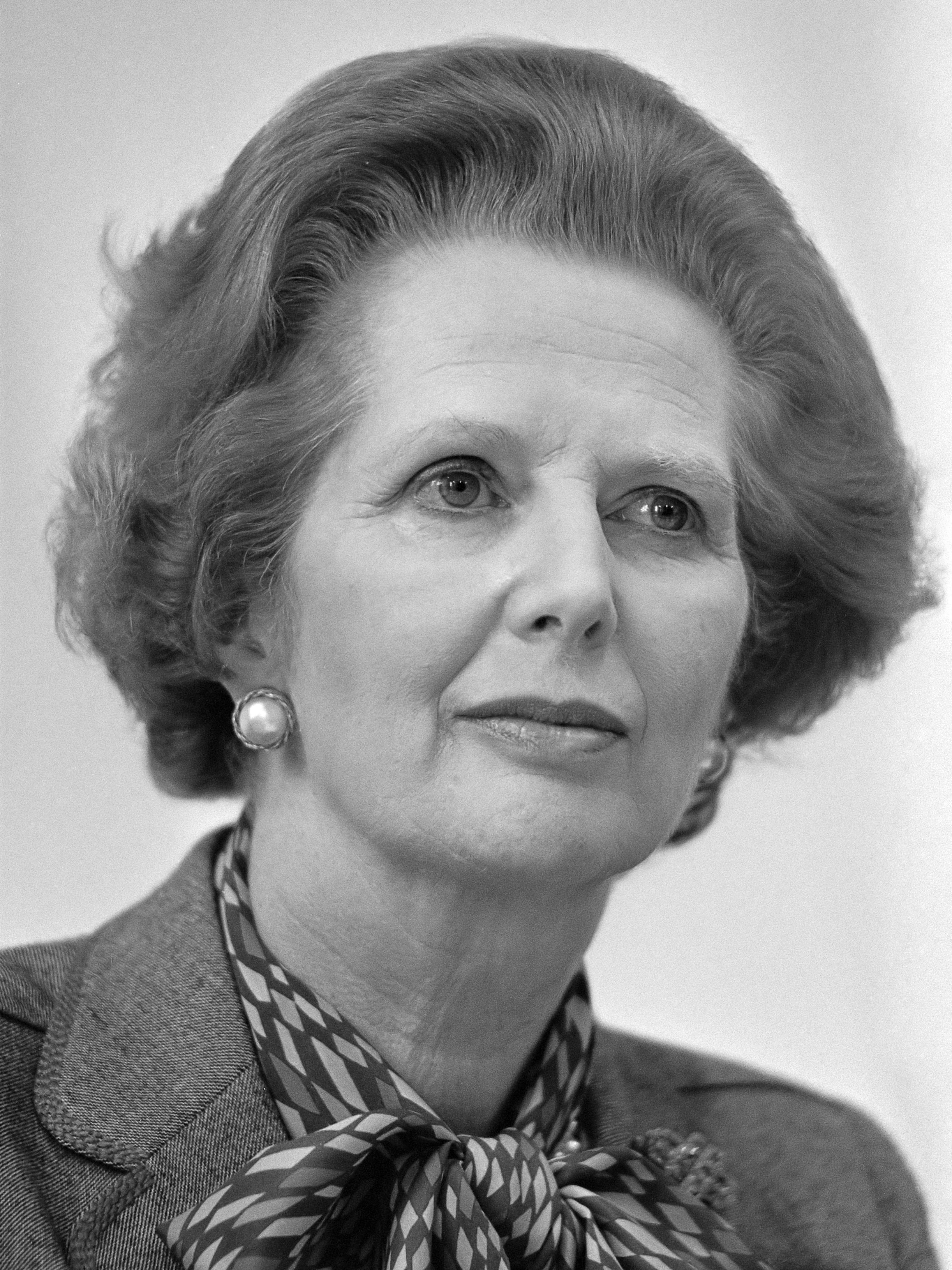
Thatcherism
Thatcherism is a form of British conservative ideology named after Conservative Party leader Margaret Thatcher that relates to not just her political platform and particular policies but also her personal character and style of management while in office. Proponents of Thatcherism are referred to as Thatcherites. The term has been used to describe the principles of the British government under Thatcher from the 1979 general election to her resignation in 1990, but it also receives use in describing administrative efforts continuing into the Conservative governments under John Major and David Cameron throughout the 1990s and 2010s.[1] In international terms, Thatcherites have been described as a part of the general socio-economic movement known as neoliberalism, with different countries besides the United Kingdom (such as the United States) sharing similar policies around expansionary capitalism.[2]
This article is about the political ideology. For the optical illusion, see Thatcher effect.
Thatcherism represents a systematic, decisive rejection and reversal of the post-war consensus inside Great Britain in terms of governance, whereby the major political parties largely agreed on the central themes of Keynesianism, the welfare state, nationalised industry, and close regulation of the British economy before Thatcher's rise to prominence. Under her administration, there was one major exception to Thatcherite changes: the National Health Service (NHS), which was widely popular with the British public.[3] In 1982, Thatcher promised that the NHS was "safe in our hands".[4]
The exact terms of what makes up Thatcherism and its specific legacy in British history over the past decades are controversial. Ideologically, Thatcherism has been described by Nigel Lawson, Thatcher's Chancellor of the Exchequer from 1983 to 1989, as a political platform emphasising free markets with restrained government spending and tax cuts that gets coupled with British nationalism both at home and abroad.[5] Thatcher herself rarely used the word "Thatcherism". However, she gave a speech in Solihull during her campaign for the 1987 general election and included in a discussion of the economic successes the remark: "that's what I call Thatcherism".[6]
The Daily Telegraph stated in April 2008 that the programme of the next non-Conservative government, with Tony Blair's "New Labour" organisation governing the nation throughout the 1990s and 2000s, basically accepted the central reform measures of Thatcherism such as deregulation, privatisation of key national industries, maintaining a flexible labour market, marginalising the trade unions and centralising power from local authorities to central government.[7] While Blair distanced himself from certain aspects of Thatcherism earlier in his career, in his 2010 autobiography A Journey, he argued both that "Britain needed the industrial and economic reforms of the Thatcher period" and as well that "much of what she wanted to do in the 1980s was inevitable, a consequence not of ideology but of social and economic change."[8]
Economic positions[edit]
Thatcherite economics[edit]
Thatcherism is associated with the economic theory of monetarism, notably put forward by Friedrich Hayek's The Constitution of Liberty which Thatcher had banged on a table while saying "this is what we believe". In contrast to previous government policy, monetarism placed a priority on controlling inflation over controlling unemployment. According to monetarist theory, inflation is the result of there being too much money in the economy. It was claimed that the government should seek to control the money supply to control inflation. By 1979, it was not only the Thatcherites arguing for stricter inflation control. The Labour Chancellor Denis Healey had already adopted some monetarist policies, such as reducing public spending and selling off the government's shares in BP.
Moreover, it has been argued that the Thatcherites were not strictly monetarist. A common theme centres on the Medium Term Financial Strategy, issued in the 1980 budget, which consisted of targets for reducing the growth of the money supply in the following years. After overshooting many of these targets, the Thatcher government revised the targets upwards in 1982. Analysts have interpreted this as an admission of defeat in the battle to control the money supply. The economist C. F. Pratten claimed that "since 1984, behind a veil of rhetoric, the government has lost any faith it had in technical monetarism. The money supply, as measured by M3, has been allowed to grow erratically, while calculation of the public sector borrowing requirement is held down by the ruse of subtracting the proceeds of privatisation as well as taxes from government expenditure. The principles of monetarism have been abandoned".[42]
Thatcherism is also associated with supply-side economics. Whereas Keynesian economics holds that the government should stimulate economic growth by increasing demand through increased credit and public spending, supply-side economists argue that the government should instead intervene only to create a free market by lowering taxes, privatising state industries and increasing restraints on trade unionism.